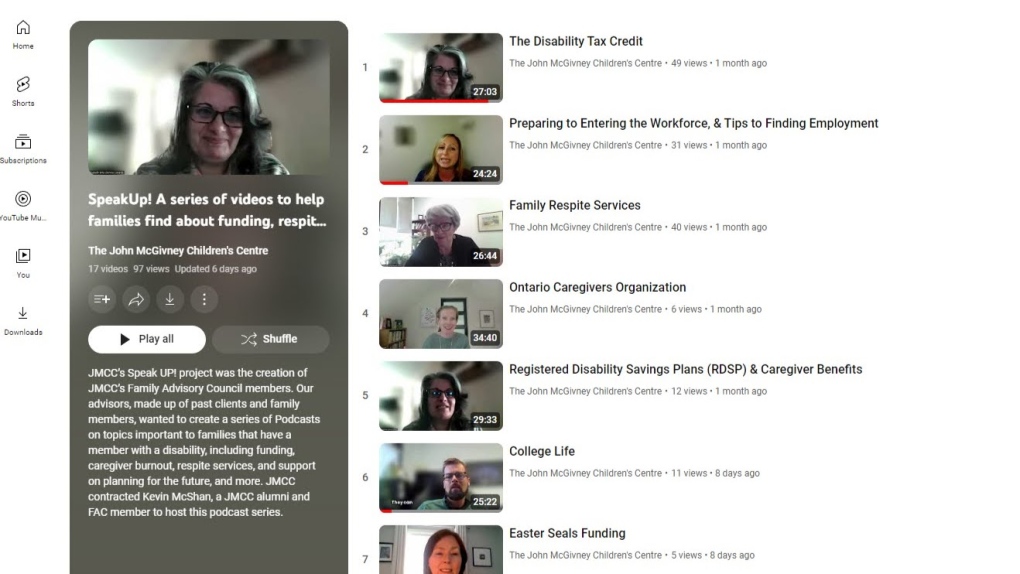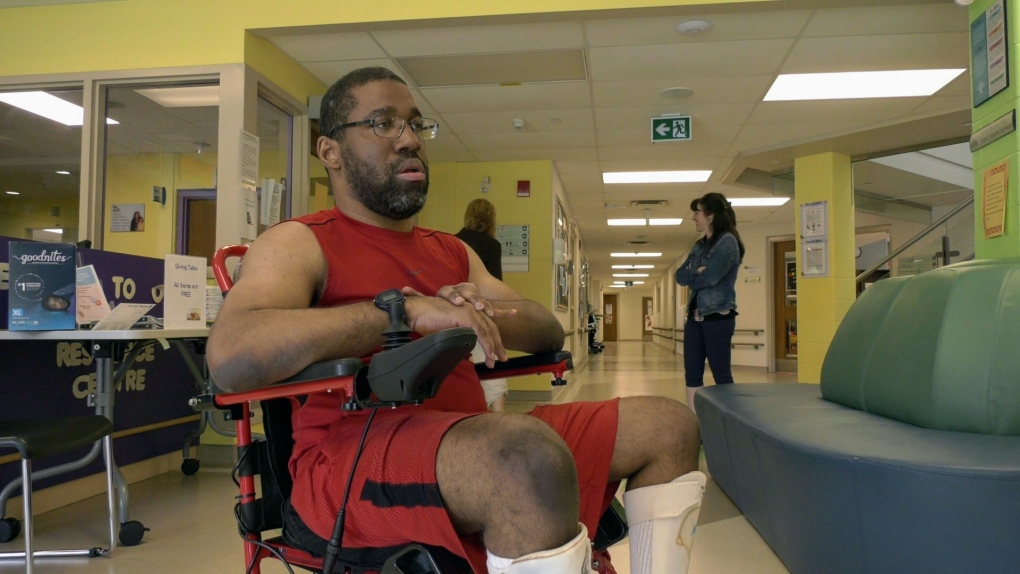A Windsor man has partnered with the John McGivney Children’s Centre to launch a video podcast aimed at helping families of children with disabilities navigate the difficult transition from child-centred to adult-centred disability services.
Kevin McShann, a disability advocate with cerebral palsy, is the host of the “Speak Up” video podcast, the first episode of which was released on the John McGivney Children’s Center (JMCC) website and YouTube channel in April 2024.
“This podcast was created as a navigation system to answer common questions for parents and families raising children with disabilities,” McShann said.
Videos cover topics such as applying for disability tax credits, how to get a job and how to navigate college life.
While facilities like JMCC are crucial for parents of children with disabilities, McShann said those same parents also want to know where they can get similar services once their children turn 18 and become adults.
“We started this podcast to give parents a more social perspective on what to expect as their children begin their adult lives,” McShann added.
 Screenshot from the Speak Up YouTube channel. (Source: YouTube)
Screenshot from the Speak Up YouTube channel. (Source: YouTube)
Wendy Tavares, program manager for JMCC, said many families of children with disabilities struggle to find all the information they need.
“It’s not all in one place, and as service providers we do our best to put books together and put information on our website, but it quickly becomes outdated,” she says. “When pediatric services are no longer available, there’s no adult John McGivney centre anywhere where young people can continue to receive support and move on to the next step in their lives.”
McShann said she is finding that many parents of children with disabilities have many of the same questions about the transition from child-oriented to adult services.
He hopes the Speak Up video podcast will serve as an information tool for families, providing immediate answers to those questions whenever and wherever they need them.
“This is another way to continue the conversation about inclusion,” McShann said.

